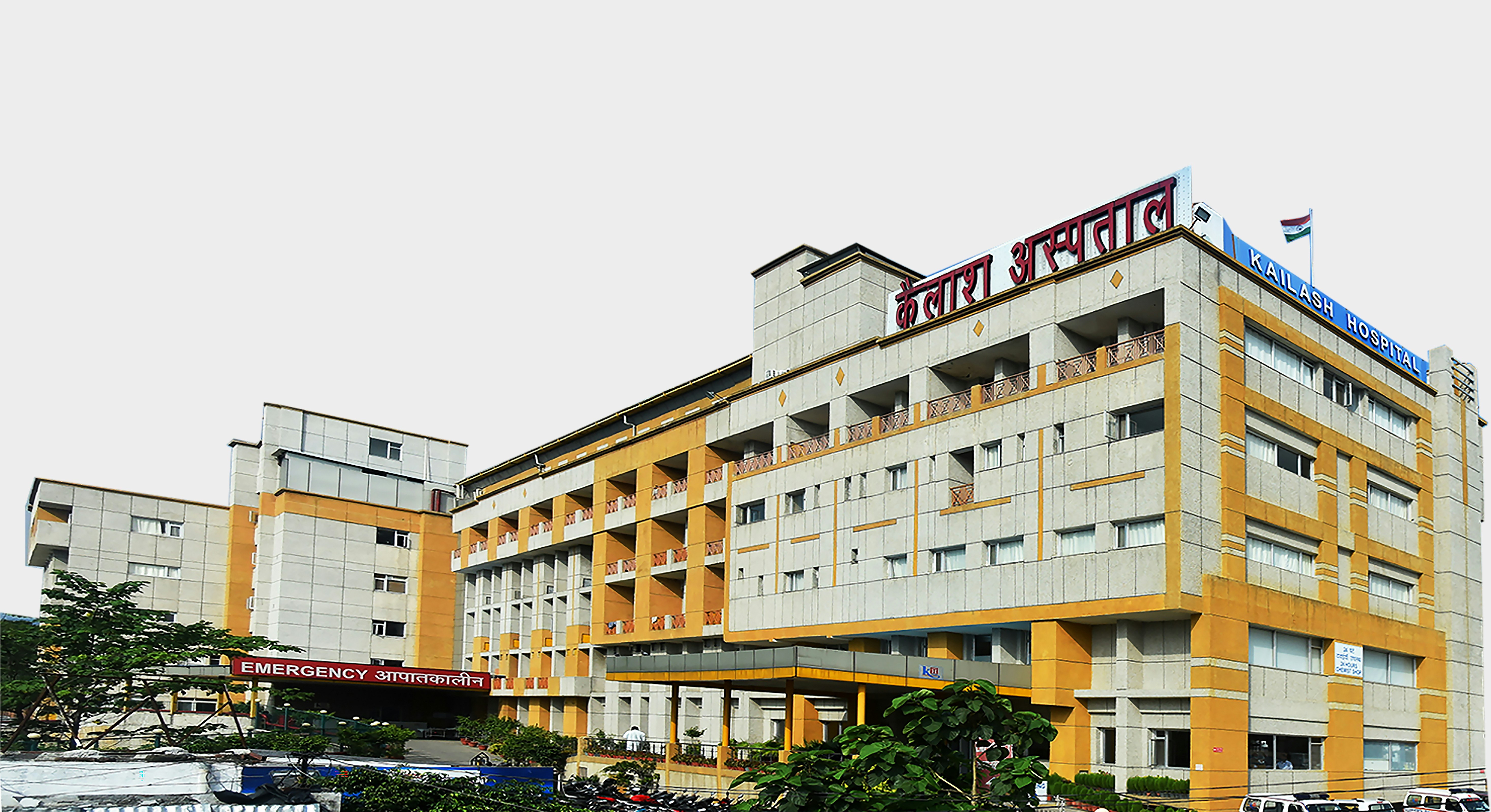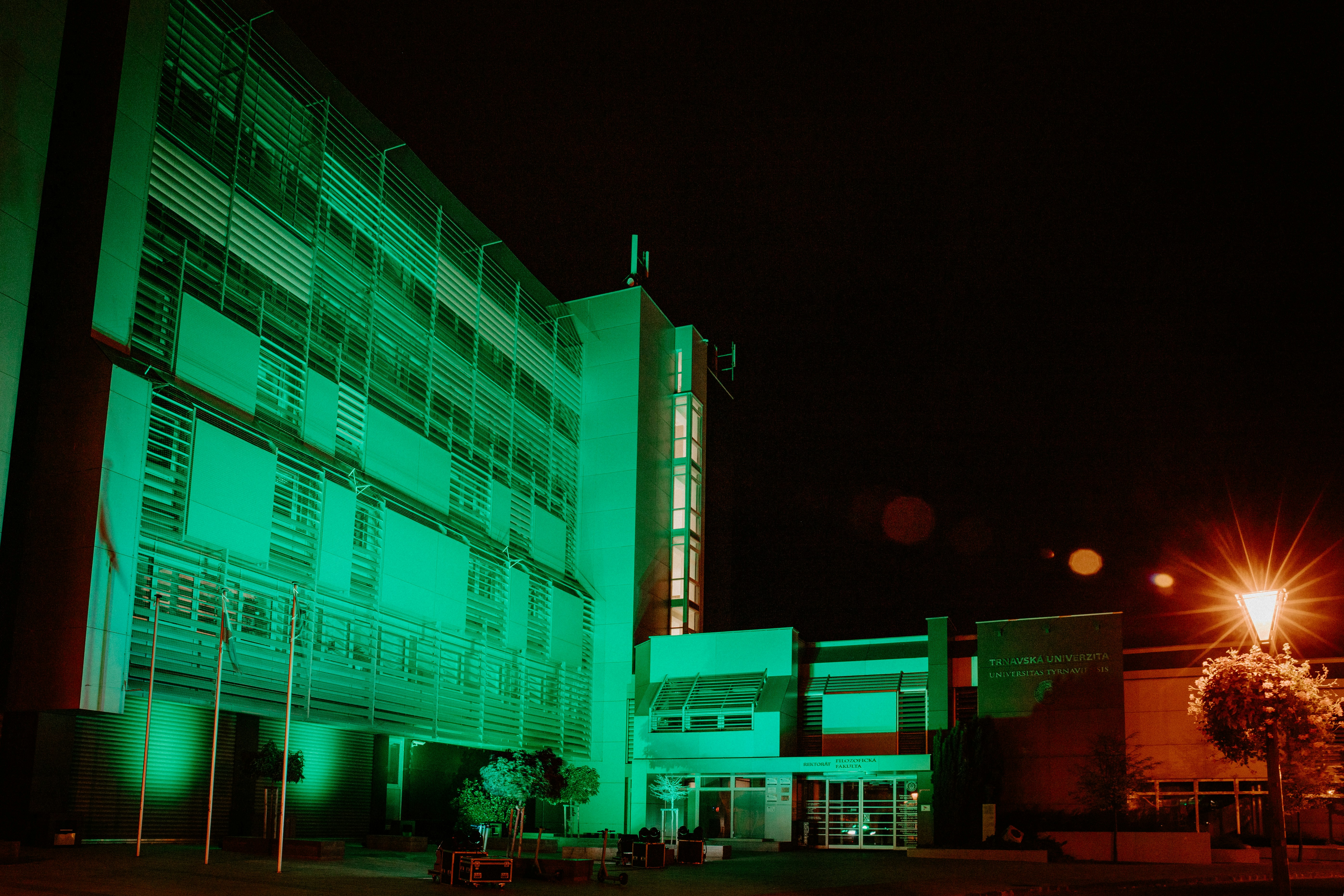Autism Testing Centers In Missouri [Where To Get Tested]

Getting tested for autism can be a life-changing step — whether you're a parent searching for answers about your child’s development, a teen facing challenges at school, or an adult finally connecting the dots about lifelong patterns. Autism testing isn’t about putting a label on someone — it’s about gaining clarity and understanding.
A proper diagnosis can open the door to the right support, therapies, and services that help improve communication, daily routines, relationships, and independence.
Who Should Consider Getting Evaluated
Autism looks different for everyone. Some people may struggle with social situations, changes in routine, or sensory sensitivities. Others might find it hard to express emotions, connect with peers, or manage everyday stress. If you — or someone you care about — shows signs of autism at any age, seeking an evaluation can be a smart and empowering first step.
In Missouri, there are a wide range of trusted options for autism testing — from leading pediatric clinics and university programs to adult-focused providers and low-cost or state-funded services. Whether you're located in St. Louis, Kansas City, Springfield, or a smaller community, this guide will help you find the right evaluation center based on your age, needs, and location — so you can move forward with clarity and confidence.
Types of Autism Testing Services in Missouri
Not all autism testing looks the same. The process can vary depending on your age, symptoms, and whether you're looking for a quick screening or a comprehensive evaluation. Here’s a clear breakdown of the main types of autism testing services available in Missouri:
Diagnostic Evaluations for Children
For young children, early diagnosis is key. These evaluations are typically done by a team that might include a developmental pediatrician, child psychologist, speech-language pathologist, or occupational therapist. The goal is to carefully observe your child’s communication, play, and behavior — and compare it with typical development milestones.
What it usually includes:
- Parent or caregiver interviews
- Play-based assessments
- Speech and language evaluations
- Observation of social and sensory behaviors
These evaluations help parents understand whether their child may be on the autism spectrum and what kinds of early interventions or supports would be most beneficial.
Autism Testing for Teens and Adults
Some individuals aren’t diagnosed until later in life — especially teens and adults who have masked their symptoms or were misdiagnosed with something else. Testing at this stage looks a bit different and focuses more on patterns of behavior, personal history, and how autism shows up in daily life.
What it often includes:
- Personal interviews and questionnaires
- Feedback from family members, teachers, or partners
- Discussion of school, work, or relationship challenges
- Sometimes cognitive or psychological testing
These evaluations are designed to uncover signs of autism that may have gone unnoticed in childhood but still affect daily functioning and well-being.
Developmental Screenings vs. Full Assessments
Not sure where to begin? Some clinics in Missouri offer developmental screenings, which are short, informal check-ins that help flag possible signs of autism. These are especially helpful for toddlers or families who aren’t sure whether a full diagnostic evaluation is necessary.
If autism is strongly suspected, a comprehensive assessment is the next step. These in-depth evaluations are conducted by licensed professionals and lead to an official diagnosis (if applicable), along with a personalized report and recommendations.
Quick Tip:
- Screening = quick check
- Full assessment = deep dive
Who Performs Autism Testing in Missouri?
Depending on where you go, autism evaluations may be conducted by:
- Developmental pediatricians
- Licensed psychologists or neuropsychologists
- Speech-language pathologists
- Autism diagnostic centers with multidisciplinary teams
Each provider may use different tools or approaches, but their goal is the same: to understand how a person’s brain processes social cues, communication, sensory input, and daily life — so they can receive the right support.
Top Places to Get Tested for Autism in Missouri
Whether you're seeking a diagnosis for a child, teen, or adult, Missouri is home to several trusted clinics, hospitals, and programs specializing in autism evaluations. Below, you’ll find top options organized by age group and service type.
For Children and Teens
- MU Thompson Center for Autism & Neurodevelopment (Columbia)
What They Offer: Comprehensive assessments for children and youth under 18 using gold‑standard tools like ADOS-2, cognitive testing, and adaptive functioning evaluation Children's Mercy+2autismcenteroftheozarks.org+2Mercy+2
Why It's Great: Designated by Missouri’s Department of Mental Health as a state Autism Center. Family referrals accepted online.
Insurance: Accepts insurance and Medicaid
Services: Diagnostic evaluations, therapy referrals, family training
- Children’s Mercy Hospital – Autism Clinic (Kansas City)
What They Offer: Multidisciplinary diagnostic services for children, with developmental-behavioral pediatricians, psychologists, and a family resource nurse Children's Mercy
Why Families Choose It: State-designated Autism Center offering excellent resources, parent coaching, and ongoing support.
Insurance: Accepts most insurance and Medicaid
- SSM Health Cardinal Glennon/Knights of Columbus Developmental Center (St. Louis)
What They Offer: Diagnostic and intervention services through a multidisciplinary team in a child-focused hospital setting DMH MissouriDMH Missouri
Why It’s Trusted: One of seven state Autism Centers. Offers diagnostic evaluations, therapy referrals, and staff training.
Insurance: Most private and state plans accepted
- Mercy Kids Autism Center (St. Louis)
What They Offer: Full ASD assessments, family navigation, genetic counseling, speech, OT, feeding evaluation, and ongoing care Mercy
Why It Stands Out: Integrates medical, therapeutic, and behavioral care personalized for each child and family.
Insurance: Accepts Medicaid and major insurance plans
- The Arc of the Ozarks Autism & Neurodevelopmental Center (Springfield)
What They Offer: Personalized diagnostic services and therapeutic interventions, family support, and behavioral programs autismcenteroftheozarks.org
Why Families Like It: Community-based with timely access, tailored help for children and teens in southwestern Missouri.
Insurance: Medicaid, private insurance, sliding-scale support
Multidisciplinary Autism Evaluation Hubs
Missouri’s Department of Mental Health authorizes seven Autism Centers statewide that combine diagnostic evaluation with intervention and training. These include:
- MU Thompson Center (Columbia)
- Children’s Mercy (Kansas City)
- Mercy Kids (St. Louis)
- SSM Cardinal Glennon Autism Center (St. Louis)
- Southeast Missouri State University Autism Center (Cape Girardeau)
- Washington University Autism Clinical Center (St. Louis)
- The Arc of the Ozarks Center (Springfield) Mercy+6DMH Missouri+6DMH Missouri+6
For Adults
Dr. Emily Crawford-Thompson – Columbia Psychology Healing Center (Columbia)
What She Offers: Specialized evaluations for adults using ADOS‑2 and other evidence-based tools, along with cognitive and life-skills assessments columbiapsychology.com
Why Adults Choose It: Empathetic, neurodiversity-affirming evaluation with follow-up counseling and referrals.
Insurance: Typically out-of-pocket; check for coverage options
University of Missouri Health Sciences – Autism Evaluation Clinic (Columbia)
What They Offer: Diagnostic assessments for youth under 18, using ADOS‑2, cognitive and adaptive testing healthsciences.missouri.eduthompsoncenter.missouri.edu
Why It’s Strong: Part of Thompson Center’s statewide consortium; follows evidence-based and collaborative diagnostic protocols.
Insurance: Accepts Medicaid and private insurance
Support Available After Diagnosis
These Missouri centers don’t just stop at testing. Families and adults are often connected with:
- ABA, speech, occupational, and behavioral therapies
- School / 504 / IEP support strategies
- Mental health or coaching services
- Genetic counseling and feeding or sensory evaluations
What to Look for in an Autism Testing Provider
- Expertise: Licensed psychologists, developmental pediatricians, or neuropsychologists trained in autism assessments
- Gold-standard tools: Use of ADOS‑2, ADI-R, structured interviews, and developmental history
- Age-appropriate services: Child‑centered clinics vs. adult‑focused providers
- After‑diagnosis support: Therapies, school planning, life skills programs
- Insurance & payment transparency: Accepts Mass Medicaid/insurance or offers sliding-scale or self-pay options
City-by-City Guide to Autism Testing Locations in Missouri
City | Clinic / Center | Who They Test | Type of Services | Insurance / Payment |
Columbia | MU Health – Thompson Center for Autism & Neurodevelopment | Children, Teens | Multidisciplinary diagnostic evaluations, family navigation | Medicaid & private insurance (thompsoncenter.missouri.edu) |
Atlas Autism Health (ABA & evaluations) | Children (preschool) | Play-based screening, ABA therapy, caregiver coaching | Accepts major insurance | |
Kansas City | Children’s Mercy Autism Clinic | Children, Teens | Comprehensive diagnostics, developmental/behavioral analysis | Most insurance & Medicaid (childrensmercy.org) |
Truman Medical Center – Behavioral Health | Children, Teens | Autism evaluations, therapy referrals | Medicaid & insurance | |
St. Louis | Mercy Kids Autism Center (Olive-Mason) | Children, Teens | ASD diagnosis, medical & psychosocial follow-up | Medicaid & private plans (mercy.net) |
Washington University Autism Clinical Center | Children, Teens | Autism evaluations integrated with psychiatry/neurology | Insurance accepted (childpsychiatry.wustl.edu) | |
SSM Health Cardinal Glennon Developmental Center | Children, Teens | Diagnostic and intervention services | Insurance & Medicaid | |
Springfield | The Arc of the Ozarks Autism & Neurodevelopmental Center | Children, Teens | Diagnosis, behavioral therapy, family counseling | Medicaid, private insurance, sliding scale (autismcenteroftheozarks.org) |
Burrell Behavioral Health – Autism Center | Children, Teens | Diagnostic evaluation & follow-up support | Medicaid & insurance | |
Cape Girardeau | SEMO University Autism Center | Children, Teens, Adults | Diagnostic evaluations and interventions | Medicaid & private insurance (semo.edu) |
Joplin | Freeman Health System – Bill & Virginia Leffen Center for Autism | Children, Teens, Young Adults | Gold-standard autism assessments, ABA therapy, parenting training | Medicaid, insurance, self-pay (freemanhealth.com) |
Jefferson City | Capital Region Medical Center Behavioral Health | Children, Teens, Adults | Autism diagnostic services, therapy referrals | Insurance & Medicaid |
Lee’s Summit | Lee’s Summit Behavioral Health Clinic | Children, Teens | Autism screening and diagnostic assessments | Private insurance accepted |
O’Fallon | SSM Health – Developmental Pediatrics | Children, Teens | Diagnostic evaluations, therapies | Most insurance plans |
Independence | Truman Medical Center Behavioral Health | Children, Teens | Autism diagnostic and behavioral health services | Medicaid and private insurance |
Columbia | University of Missouri Health Care – Autism Clinic | Children, Teens | Comprehensive evaluations and research-based services | Medicaid & insurance |
Additional Notes
- State-Designated Autism Centers are available in multiple cities including Columbia, Kansas City, St. Louis, Springfield, and Cape Girardeau, providing a coordinated statewide network of autism diagnostic and intervention services (dmh.mo.gov).
- Age Eligibility varies — most centers serve children and teens, while some (SEMO, Jefferson City) offer adult evaluations or transition-age supports.
- Insurance & Access — Most providers accept Missouri Medicaid or private insurance. Sliding scale or self-pay options are sometimes available, especially through university clinics.
- Referrals — Many centers require referrals from primary care or pediatricians, particularly when using insurance.
- Wait Times — Popular centers often have waitlists. Early contact and multiple inquiries may reduce wait time.
Low-Cost and Free Autism Testing Resources in Missouri
Getting tested for autism can be costly, especially without insurance. Fortunately, Missouri offers several options for low-cost or even free evaluations, particularly for children or families with limited income.
State-Funded Clinics
The Missouri Department of Mental Health (DMH) supports families through state-funded autism centers and early intervention programs. For children under age 3, early intervention services often include free or low-cost autism screening and access to support. These programs help families navigate evaluations and therapies without the financial burden.
University-Based Autism Clinics
Universities like the University of Missouri (MU) and Southeast Missouri State University (SEMO) offer autism testing through their psychology and education departments. These clinics are often supervised by licensed professionals and may provide reduced fees, especially when part of research studies or training programs.
- MU Health – Thompson Center for Autism & Neurodevelopment: Offers comprehensive evaluations at reduced rates for qualifying families.
- SEMO University Autism Center: Provides diagnostic assessments and may offer free or low-cost services for research participants.
Nonprofits and Grants
Several nonprofits in Missouri assist families by offering scholarships, referrals, or connections to free or affordable services:
- The Arc of Missouri: Supports families with resources and guidance to find affordable testing and therapies.
- Missouri Autism Project: Provides information on local resources and financial assistance options.
How to Choose the Right Evaluation Center
Not all testing centers are the same, and finding the right one can make a big difference in your experience and results. Here’s what to look for:
- Qualified professionals: Ensure the center has licensed psychologists, developmental pediatricians, or behavior specialists experienced with autism.
- Age-appropriate services: Some centers specialize in children, others in adults. Pick a center suited to your or your loved one’s age and needs.
- Comprehensive evaluations: The best clinics go beyond brief screenings—they observe behavior, take detailed histories, and use trusted tools like the ADOS.
Questions to Ask Before Booking:
- Do you evaluate children, teens, or adults?
- What is the current wait time for an appointment?
- Do you accept insurance or offer payment plans?
- Will I receive a written report and recommendations after testing?
Choosing a center that communicates clearly, respects your concerns, and answers your questions thoroughly is a good sign you’re in capable hands.
Do You Need a Referral for Autism Testing in Missouri?
Whether you need a referral for autism testing in Missouri depends on where you go and how you plan to pay.
If You’re Using Insurance
Most private insurance plans—and Missouri Medicaid (MO HealthNet)—typically require a referral from your child’s pediatrician or your primary care doctor. This referral helps the insurance company approve and cover the cost of the evaluation.
If You’re Paying Out of Pocket
If you’re paying privately without insurance, you usually don’t need a referral. You can contact clinics, psychologists, or evaluation centers directly to schedule an appointment for an autism assessment.
For Schools or Early Intervention
If your child is under 3 years old, you can access early intervention services directly through Missouri’s First Steps program, which includes developmental screenings and autism evaluations. For children age 3 and older, you can request testing through your local public school’s special education department, even if your child isn’t yet enrolled.
Autism Testing for Adults: What’s Different?
Autism is not only diagnosed in childhood—many adults go undiagnosed for years because they learned to “mask” symptoms or were misunderstood growing up. Increasingly, adults are seeking autism evaluations after recognizing signs in themselves.
What Makes Adult Testing Unique?
- Signs Are More Subtle: In adults, autism may appear as social exhaustion, anxiety, difficulty with change, or intense focus on routines and interests. These traits are often mistaken for anxiety, ADHD, or personality quirks.
- You May Already Have a Job or Family: Adult testing looks at how you function in daily life—at work, in relationships, and at home—not just in school or social settings.
- Providers Matter: Not all clinics specialize in adult autism diagnosis. It’s important to choose providers experienced with adult assessments, such as licensed psychologists familiar with adult autism traits.
Why Adults Seek Testing:
- To better understand themselves and their experiences
- To access workplace or academic accommodations
- To connect with adult support groups and services
- To find answers to lifelong questions about their differences
If you’re an adult considering evaluation, look for centers in Missouri that offer adult-specific autism assessments to ensure a sensitive and thorough process.
How Long Does Autism Testing Take in Missouri?
Autism testing isn’t just a single appointment—it’s a step-by-step process designed to give a complete understanding of a person’s strengths and challenges. Here’s what you can expect:
Initial Call or Intake
You’ll typically start by filling out forms and may have a brief phone interview to gather basic information.
Wait Time
Depending on where you seek testing in Missouri, wait times can range from a few weeks to several months—especially at popular clinics or with specialists experienced in autism evaluations.
Testing Day(s)
You or your child may spend several hours with a psychologist or specialist. This can include:
- Answering questions about behavior and development
- Completing tasks or puzzles
- Discussing daily life and social interactions
Parent or Caregiver Input
For children and sometimes adults, interviews with family members or caregivers help provide a fuller picture of strengths and challenges.
Final Report
After testing, you’ll receive a detailed report with results and, if applicable, a diagnosis. This report typically takes 2 to 6 weeks to be completed and shared.
What Happens After the Diagnosis?
Receiving a diagnosis is not the end—it’s the beginning of access to support, understanding, and new opportunities.
If a Diagnosis Is Given, You Can Expect:
- A written report with a full evaluation, diagnosis, and recommendations
- Access to therapies such as Applied Behavior Analysis (ABA) for children
- Speech or occupational therapy
- Social skills groups or life coaching for teens and adults
- Support with school or workplace accommodations
Other Benefits May Include:
- Eligibility for IEP or 504 Plans at school
- Government assistance programs such as Missouri’s Division of Developmental Disabilities (DDD), Social Security benefits, or job training
- Increased confidence and relief from understanding what’s been going on
Tip: Even if the diagnosis is not autism, testing can reveal other helpful information—like anxiety, ADHD, or learning differences—so you can pursue the right supports.



